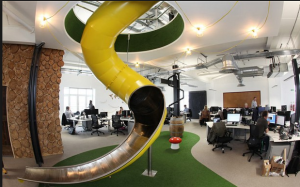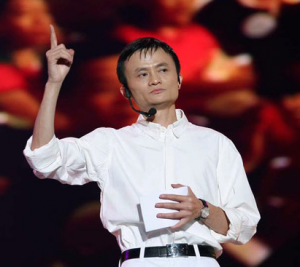Excerpted from Francis Cholle’s The Intuitive Compass, Jossey-Bass
 Creativity and innovative thinking are great, but the ability to notice the one pivotal piece of information in a creative brainstorming session is key to transforming an organization or making a project truly innovative. This is why we need to carefully pay attention and notice with our senses, open to the unusual or the irrational, but at the same time analyze and evaluate that information. Just because something does not make sense from the point of view of logic does not mean that it lacks value. A simple example: when Isaac Newton saw an apple fall from a tree, he did not simply see a usual phenomenon of nature. He was inspired to start thinking about a particular type of motion–gravity–which then revolutionized our perception of the universe. If he had not been open to his inner feeling of puzzlement, he would have simply seen an apple falling from a tree, and he would not have developed his novel understanding of the workings of the universe through mathematics.
Creativity and innovative thinking are great, but the ability to notice the one pivotal piece of information in a creative brainstorming session is key to transforming an organization or making a project truly innovative. This is why we need to carefully pay attention and notice with our senses, open to the unusual or the irrational, but at the same time analyze and evaluate that information. Just because something does not make sense from the point of view of logic does not mean that it lacks value. A simple example: when Isaac Newton saw an apple fall from a tree, he did not simply see a usual phenomenon of nature. He was inspired to start thinking about a particular type of motion–gravity–which then revolutionized our perception of the universe. If he had not been open to his inner feeling of puzzlement, he would have simply seen an apple falling from a tree, and he would not have developed his novel understanding of the workings of the universe through mathematics.
This is why I advise clients to stop thinking and start feeling. If all we did was to think and only think, we would not allow the sensorial perception and emotions that come along with thoughts to feed our creative imagination. When we are anchored in our conscious mind, we know only what it knows. Now ideas–ideas we don’t yet about –cannot be found in our conscious mind, because we already necessarily know everything that is conscious to us! So the ability of move beyond our conscious thinking an access our unconscious is key to creativity.
And excellent example of the business value of the skill of noticing the unusual can be found in the commercial airline industry. Many of us have probably wondered how air travel ever became so unpleasant. What began three generations ago as one of the most luxurious of consumer experiences, an event that people dressed up for and looked forward to, has degenerated to the point that the average consumer approaches it as if preparing for battle. Today it is an experience marked by bad food (or no food), a smelly environment, narrow seats, poor service, delayed flights, stern-faced flight attendants, shabby cabins, and outdated design. For frequent business travelers on tight schedules it’s often challenging in both economy and business class alike. However, one company has been able to provide it clientele with quite a different experience: Virgin America.
Virgin America, a company that first put its planes in service in 2007, didn’t become an award-winning airline in an industry-wide financial crisis by slashing costs or slashing ticket prices; they did it by raising the bar on design, service and customer experience. Beautiful design, uplifting colors, clean cabins, warm and personable service, short waiting time to check in, and easy upgrades are among the many ways Virgin America has attempted to make passenger’ experience easier and more enjoyable. But more important Virgin understand our unconscious needs. The planes have a mood-enhancing lighting system on board that is reassuring because it relaxes the body and, by doing so appeases our discomfort or fear of flying. Virgin America also gives all passengers on board the opportunity to order their own food from their seats through a personal digital screen, allowing them to eat on their own schedule. this last detail is genius because control of one’s own eating schedule is key on an instinctual level. Whether we’re conscious of it or not, managing our hunger at our own will is reassuring.
Both relaxing lights and food on your own time touch the passengers at an instinctual level. Many will say that they choose an airline based on cost or, for people who can afford it, comfort, and they’ll most likely be sincere. What they don’t realize, though, is that when they get on board, their reptilian brain is unavoidably evaluating whether they’re safe or not. And when an airline caters to this basic need, passengers at some level eventually feel it and this positively influences their relationship to the airlines.
So how did Virgin America come to think of these great ideas for the comfort of their passengers? They put themselves in the shoes of a passenger and truly tried to see and understand the way passengers feel rather than focusing first and foremost on the profitability generated by every ticket sold. They opened themselves up to their creative imagination by paying attention to two unusual aspects of traveling: lighting and food service. Two things that were never contemplated before. Virgin America has been voted the best North American airline multiple times by readers of Condé Nast Traveler, a luxury travel magazine, showing that the ability to notice the unusual is a powerful aptitude, one that can put a company ahead of its competition.





